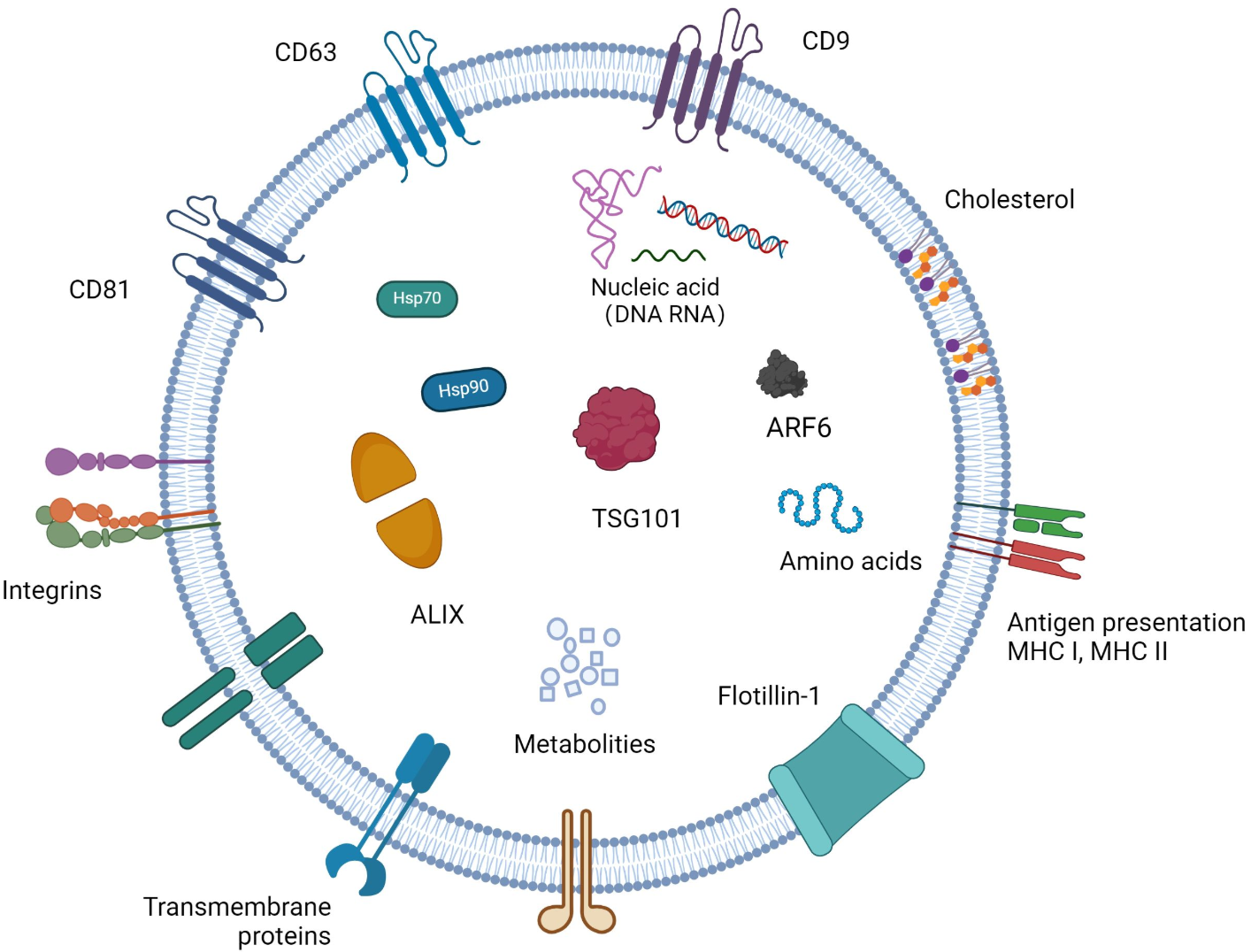Exosome Antibody Development Service
Exosome antibodies are specialized immunoglobulins designed to recognize and bind to surface proteins uniquely expressed on exosomes. These antibodies enable precise detection, isolation, and characterization of exosomes, thereby providing critical insights into cell-to-cell communication and disease progression. In response to the growing demand for highly specific and sensitive exosome-targeting tools, MtoZ Biolabs now offers a Exosome Antibody Development Service to support researchers in life sciences and medical industries.
Exosomes are small, membrane-bound vesicles secreted by various cell types, carrying proteins, lipids, and nucleic acids. The surface of exosomes is enriched with a variety of membrane proteins, often referred to as exosome surface markers. These markers are key to the exosome’s function, aiding in the interaction with target cells and mediating processes such as cellular uptake and signaling. Common exosome surface markers include tetraspanins such as CD9, CD63, and CD81. These surface proteins are frequently used for the identification, isolation, and characterization of exosomes in biological samples. The principle behind exosome antibody development is to generate highly specific antibodies targeting these surface markers, ensuring precise capture, detection, and analysis of exosomes in diverse applications, from basic research to clinical diagnostics.

Figure 1. The Content of Exosomes and Biomarkers for Exosomes
Service at MtoZ Biolabs
MtoZ Biolabs employs state-of-the-art technologies to produce high-quality exosome antibodies, covering all stages of development from antigen design and screening to final validation. By integrating advanced platforms like hybridoma-based and phage display methods, we create antibodies with robust performance in assays such as Western blot, immunofluorescence, flow cytometry, and immunoprecipitation. Our comprehensive service enables researchers to overcome challenges related to exosome isolation and analysis, allowing for more reliable identification of exosome populations and their associated biomarkers.
Our services include:
1️⃣Premade Phage Display Library Screening for Exosome Antibodies
MtoZ Biolabs offers a wide range of premade phage display antibody libraries sourced from various species like human, mouse, rabbit, and chicken. These libraries enable rapid screening for high-affinity, high-specificity antibodies targeting exosomes, with no prior immunization required.
2️⃣Immune Phage Display Screening for Exosome Antibodies
We construct and screen immune phage display antibody libraries by immunizing animals with exosome-associated antigens. This process allows for the generation of monoclonal antibodies that undergo in vivo affinity maturation, ensuring high specificity and improved affinity for the target antigen.
3️⃣B Cell Sorting for Targeted Exosome Antibody Development
Our B cell sorting technology isolates single B cells from primary B cell populations, followed by the amplification and expression of their antibody-coding genes. This method is ideal for developing antibodies for diagnostics, pharmacokinetic studies, and clinical applications, offering precise targeting of exosome-related antigens.
MtoZ Biolabs' Exosome Antibody Development Service addresses key research and diagnostic hurdles by providing customized solutions tailored to specific experimental goals. We help clients accelerate their projects by delivering exosome antibodies that unlock deeper understanding of exosome biology and open new avenues in areas like cancer detection, therapeutic target validation, and regenerative medicine. Free project evaluation, welcome to learn more details!
Service Advantages
✔️Leverage our established phage display platform for efficient and precise antibody development.
✔️We generate antibodies with exceptional specificity and affinity, ensuring reliable results in your research.
✔️Our antibodies are optimized for use in various downstream applications.
✔️Benefit from our experienced team who provides continuous guidance to ensure the success of your project.
Applications
1. Exosome Isolation
The developed exosome antibodies can be used for isolating exosomes from complex biological samples, such as blood or urine. This enables researchers to study exosome content without interference from other cellular materials.
2. Tumor Biomarker Detection
Specific exosome antibodies help identify cancer-related biomarkers, making them essential for early cancer diagnosis through liquid biopsy.
3. Therapeutic Monitoring
Antibodies targeting specific exosomal biomarkers can be used to monitor the progress of treatments, especially in oncology, by tracking the exosome-based molecular signatures of the tumor over time.
4. Disease Mechanism Understanding
By studying exosomes derived from different disease states, researchers can gain insights into the mechanisms of diseases like cancer, neurodegenerative disorders, and cardiovascular diseases.
FAQ
Q1: What are the typical exosome markers involved in antibody development?
Typical exosome markers involved in antibody development include tetraspanins such as CD9, CD63, and CD81, along with heat shock proteins like HSP70, and epidermal growth factor receptor (EGFR). These markers are commonly targeted for their roles in exosome formation, trafficking, and intercellular communication.
Q2: How are antibodies developed for the investigation of exosomes?
Antibodies for exosome investigation are developed by first selecting target markers or cargo proteins associated with diseases. Animals are immunized with exosomes or related peptides, and hybridoma technology or phage display is used to generate monoclonal antibodies or diverse antibody libraries. These are screened for specificity and affinity using techniques like ELISA, flow cytometry, and Western blotting. The selected antibodies are then validated for their ability to bind exosomes and are further characterized in experimental models for cross-reactivity and functionality.
How to order?







